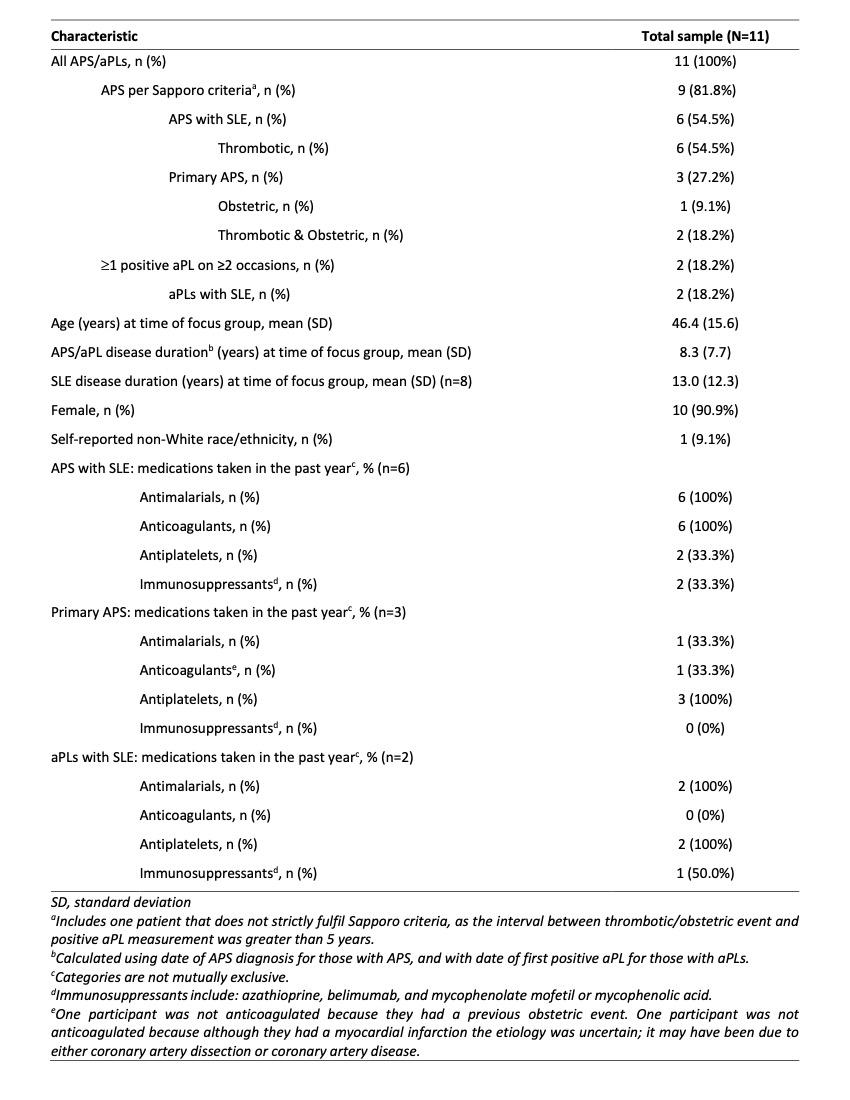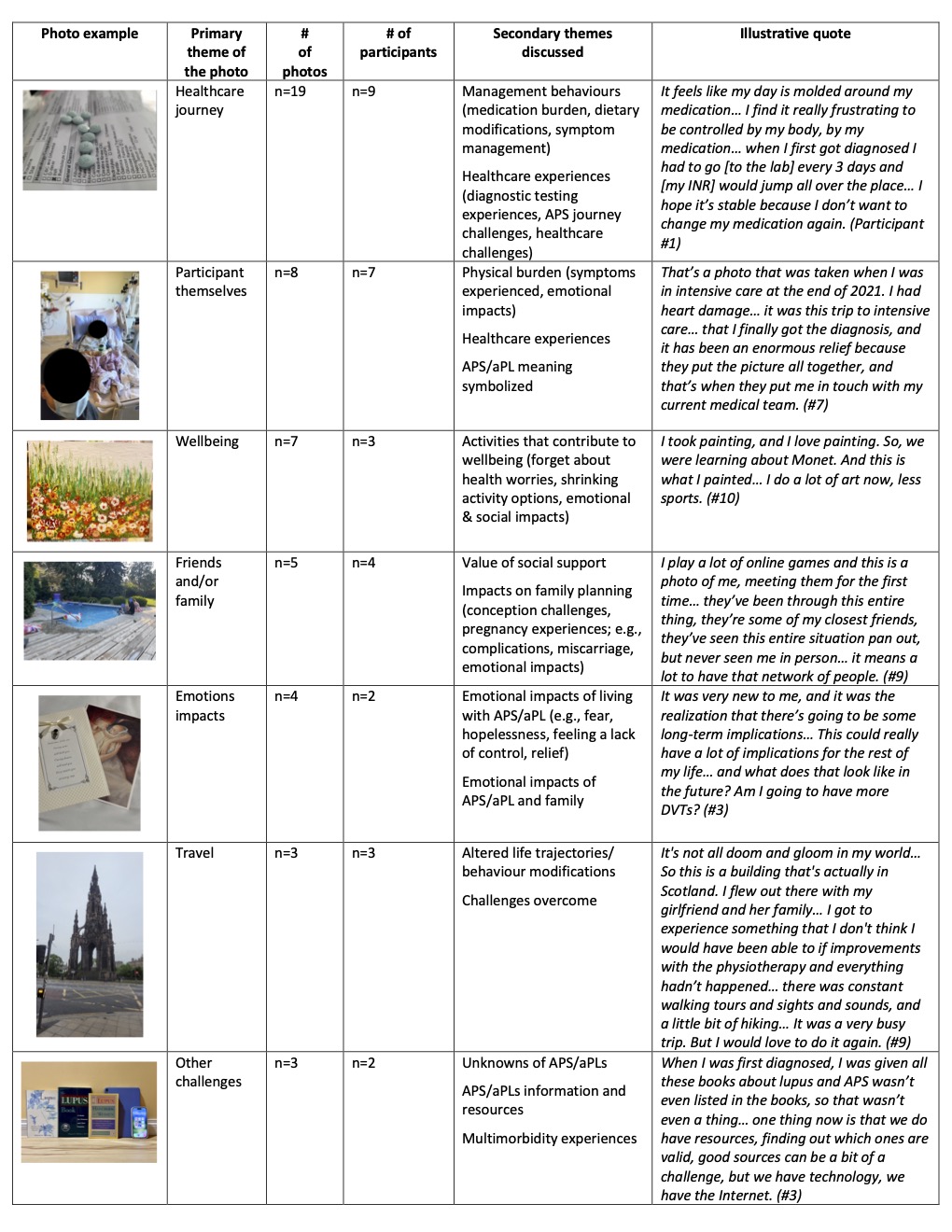Session Information
Session Type: Poster Session B
Session Time: 10:30AM-12:30PM
Background/Purpose: The diverse manifestations of antiphospholipid syndrome (APS) and antiphospholipid antibodies (aPLs) exert substantial but poorly understood impacts on the lives of those affected. This study explores the lived experiences of individuals with APS/aPLs using an innovative photovoice (a participatory visual-narrative research method) exercise.
Methods: Participants aged ≥18 years with APS per the Revised Sapporo criteria or with ≥1 positive aPL (medium to high positive IgG anticardiolipin and/or medium to high positive IgG anti-beta2-glycoprotein 1 and/or positive lupus anticoagulant) on ≥2 occasions without thrombosis or pregnancy morbidity were recruited from a Canadian multidisciplinary SLE/APS clinic. Over a two-week period, participants photographed what APS/aPL means to them, impacts on daily life, and factors that impact how they manage APS/aPLs. Photos were shared and discussed in two focus groups, which were recorded and transcribed verbatim for thematic analysis.
Results: Eleven individuals with APS/aPLs participated; 54.5% had APS with SLE, 27.2% had APS without SLE, and 18.2% had aPLs with SLE. Mean (SD) age was 46.4 (15.6) years, and 90.9% were female (Table 1). Participants shared 49 photos: images depicted the participants’ healthcare journey (n=19 photos), the participant themselves (n=8), activities that contribute to wellbeing (n=7), friends and/or family (n=5), emotional impacts (n=4), travel (n=3), and other challenges (n=3) (Table 2). Participants emphasized the emotional impacts of living with APS/aPLs, particularly related to healthcare experiences (‘[the lab] is a constant reminder of your disease, a constant reminder of your weakness’ (Participant #2)), physical symptoms (‘it’s very concerning, because you could possibly have a clot’ (Participant #1)), family planning (‘’I am 37 weeks… I was worried every single day… what will happen if my baby gets the disease as well?’ (Participant #11)), and altered interactions with the people, activities, and places enjoyed prior to an APS/aPLs diagnosis (‘I used to be a triathlete… a lot of people I used to do things with I don’t see anymore’ (Participant #4)). Participants shared how challenges of the APS/aPLs healthcare journey (e.g., medication burden; ‘There’s a real cascading effect of all the medication’ (Participant #7)) exert a substantial physical, lifestyle and psychosocial burden.
Conclusion: The use of this visual-narrative methodology allowed participants the autonomy to shape the focus group discussions, eliciting a more complete picture of the APS/aPLs lived experience. Results increase our understanding of the social, emotional and lifestyle impacts experienced by those with APS/aPLs and will inform the development of patient resources and healthcare practices that better meet the needs of those affected.
To cite this abstract in AMA style:
Cardwell F, Elliott S, Gibson P, Soliman N, Skeith L, Clarke A, Barber M. Living with Antiphospholipid Antibodies: A Photovoice Exploration [abstract]. Arthritis Rheumatol. 2024; 76 (suppl 9). https://acrabstracts.org/abstract/living-with-antiphospholipid-antibodies-a-photovoice-exploration/. Accessed .« Back to ACR Convergence 2024
ACR Meeting Abstracts - https://acrabstracts.org/abstract/living-with-antiphospholipid-antibodies-a-photovoice-exploration/


